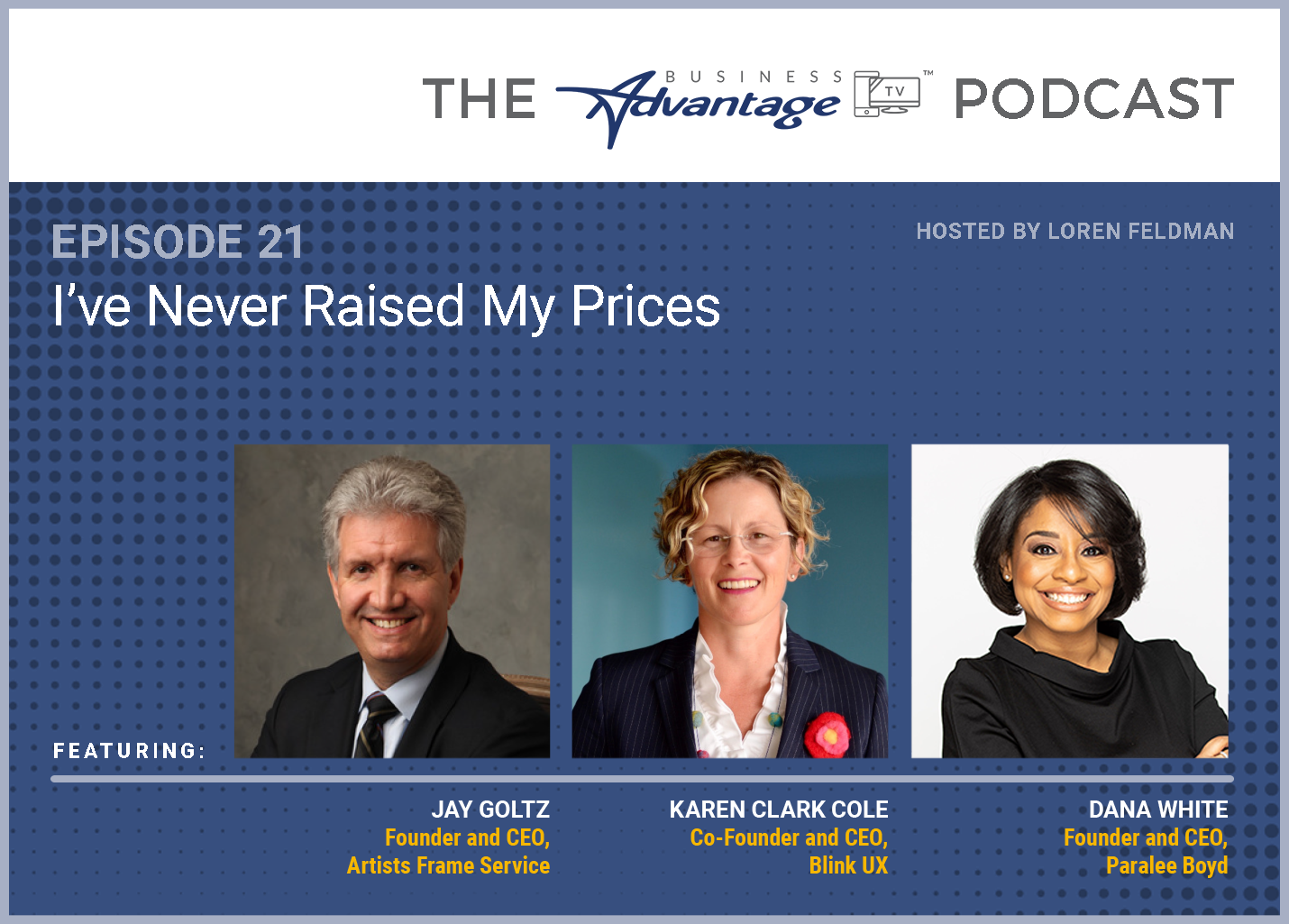
Karen Clark Cole, Jay Goltz, and Dana White discuss their pricing strategies and why raising prices can be such a challenge: Dana tells us she has often wondered, “If I raise my prices, is this the decision that's going to make me close my doors?” And Jay recalls a customer who came into his picture framing shop and told a sales consultant, “Wow, that's a lot more than the other place I've gone to.” “Really, why don't you go there?” “Well, they're out of business.” And that, Jay tells us, helps explain why there are far fewer frame shops than there used to be.
In episode 20, Karen Clark Cole, William Vanderbloemen, and especially Dana White have a painful, impassioned, uncomfortable conversation about trying to position their businesses and lead people in the aftermath of George Floyd’s murder and the ensuring protests. What do we tell customers? What do we tell employees? What do we tell Black employees? Dana challenges us to take a stand—even if it’s uncomfortable—especially if it’s uncomfortable: “This is not about being comfortable. As business owners, you're either over there or you're over here.”
This week we focused on Laura’s struggle to get control of a Texas-based yarn supplier that she acquired late last year. She’s had issues with inventory, personnel, quality control, and then the general manager walked out, which has Laura feeling deflated knowing that some employees are talking about her and some just don’t like her: “I really struggle with that. Am I the only one who struggles with stuff like that?” Plus: Laura and Jay talk about seizing the opportunity when a competitor goes out of business.
Before the crisis hit, in episode 18, Jay, Dana, and William talked about what they thought the next recession might mean for their business and the benefits of starting a business during a recession: “What I've learned is, when things go bad and I lose $300,000 and I take out a second mortgage on my house, no one comes into my office and says, ‘Hey, boss, can I give you some money?’” Plus: Some making tough decisions on employee compensation.
This week, in episode 17, Jay Goltz and Dana White talk about overcoming the fear of raising prices (during a pandemic!), deciding when is the time to tell employees they have to come back if they want their jobs, and finding opportunities amid the crisis disruption. But the focal point of the conversation is Dana White discussing her realization that she’s been more productive during the crisis, even with her hair salons shut down, than at any other time since she started her business seven years ago. “I have been emotionally drained for years,” she told us. “And because I've been emotionally drained, I have not grown my business.”
This week, in episode 16, Karen, Jay, and Laura talk about dealing with questions they’ve never faced before: Is it safe to fly again? What do you do if you run out of inventory and can’t get more? How do you entice employees back into the office who’ve either been happy working from home or happy collecting enhanced unemployment? Do you offer hazard pay? And if so, how and when will you stop? “We're trying to stay in business, for God's sake,” says Jay Goltz. “We will have been shut down for two and a half months. And there's a point where I'm the only one who's gonna be losing money in this deal. At the end of the day, [my employees] are getting extra money from the government for unemployment. They're getting hazard pay. Everybody at the end of the year is going to have a banner year for income. And I'm going to lose hundreds and hundreds of thousands of dollars.”
This week, in episode 15, Jay, Dana, and Laura talk about the process of reopening—the precautions, the risks, the consumers who might not show up, the dilemma of asking employees to accept less in pay than they were getting in unemployment, and the possibility of a second coronavirus wave that could bring a second shutdown: “I don't have the luxury of just saying, ‘Oh, I'll tell you what. Maybe we'll open in six weeks, eight weeks.’ I mean, there's some point where I'll be out of business.” Plus: Dana got her PPP and an EIDL.
This week, in episode 14, Karen, Dana, and Laura share their experiences building businesses as women entrepreneurs: “It's like, ‘Well, you can tell me I can't do this, but it looks like I did.’” Plus: Has the legalization of recreational cannabis had an impact on your business?
This week, in episode 13, Karen, William, and Dana talk about why some businesses got the Paycheck Protection Program loans and why some didn’t: “The independent grocers. The hair salons. The small restaurants. They didn't get the money,” says Dana. “I have a staff who are single mothers, single black mothers, who are hard-working and who didn't have the foundation to go to college and are doing what they can. I'm up every night trying to help them, and I need help helping them. And I'm not getting it.”
This week, in episode 12, Jay, William, and Laura talk about the status of their CARES Act loans, and to everyone’s surprise (including his own), William reveals not only that his Paycheck Protection Program loan has been approved, but he’s already got the cash. Was it divine intervention? Plus: Jay offers up a stress test for businesses in crisis—five ways to assess whether your company is positioned to survive.



